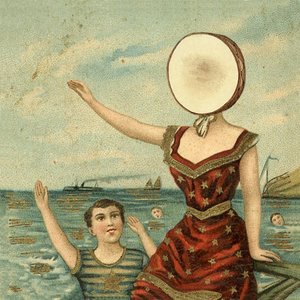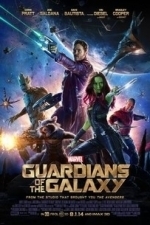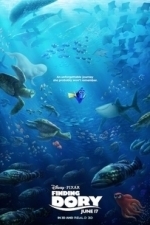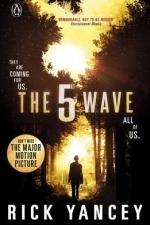
Hannah's Summer Crush
Games and Education
App
OMG, Jack asked Hannah on a new date! Help her get ready for a beach date with her high school crush...
Blaine Harrison recommended track In the Aeroplane Over the Sea by Neutral Milk Hotel in In the Aeroplane Over the Sea by Neutral Milk Hotel in Music (curated)

Storm Radar with NOAA Weather
Weather and Lifestyle
App
Weather like you’ve never seen before with the Storm Radar app for iOS! Full screen interactive...

Action Movie FX
Entertainment and Photo & Video
App
Apple App of the Year ACTION MOVIE FX lets you add Hollywood FX to iPhone and iPad movies that YOU...

walkit.com
Navigation and Health & Fitness
App
The urban walking route planner for 70+ towns and cities† in England and Scotland († *** N.B....
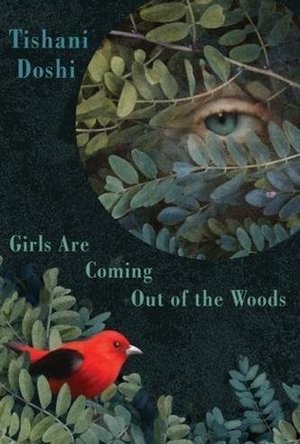
Girls Are Coming Out Of The Woods
Book
'In Girls are Coming out of the Woods, Tishani Doshi combines artistic elegance with a visceral...
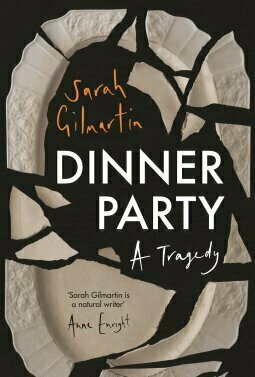
Dinner Party: A Tragedy
Book
A MAJOR 2021 DEBUT FICTION LAUNCH, THIS REMARKABLE IRISH NOVEL ABOUT THE MESSINESS OF MODERN FAMILY...
Ryan Hill (152 KP) rated Guardians of the Galaxy (2014) in Movies
May 10, 2019
Guardians of the Galaxy almost off the bat confronts two major complaints I hear about Marvel flicks. First, that they don't look cinematic. Call it the "TV show aesthetic." Moderately flat shots, muted colors, forgettable music, etc. Second, that they're too heavy on witty banter and don't leave enough room for genuinely meaty substance. In regards to the first point, this film looks gorgeous. The color palette and cinematography are both creative and have an absolute blast with the concept of creating a grandiose space opera with equal parts charm and toilet humor. Each planet has its own distinct decor and aliens. Gunn managed to create a fleshed-out, lively, and unique galaxy. In regards to the second point, while there is all sorts of banter to be found throughout, including a Jackson Pollock cum joke, Guardians of the Galaxy has to have the biggest heart out of any film in the MCU. The movie is a full measured ton of fun, but it tugs at the heartstrings in a way few modern blockbusters have been able to achieve.
Four of the five Guardians have something in their life that lead to great tragedy. Peter and Drax lost family very close to them. Gamora and Rocket were tortured and bred to be bloodthirsty warriors. But then, there's Groot. Sweet, unassuming Groot. A beast in battle, but a gentle giant otherwise. His existence seems simple. He eats a leaf off of his shoulder, he drinks water straight from a fountain, and he's more than willing to grow and give a flower to a small girl. He's perhaps the closest we have to a lead character who is wholly happy. The Guardians all start off as renegades, loners, folks reasonably hardened by lives that have enjoyed fucking them over. We get to see them by the end of the film not just grow into heroes, but friends and good people. I am Groot. You are Groot. We are Groot.
Marvel took a big gamble with this movie, but it payed off so absurdly well. The humor is great, the characters even better, and the atmosphere equal parts fun and emotional. Guardians of the Galaxy stands out in the sea of superhero films as a movie that wears its heart on its sleeve. It's weird, but it's damn proud of the fact that it is. Maybe it's alright to be a loser. The world could use a few more losers to help us along the way of life. I think what I'm trying to get down to is this: It was polite of James Gunn to make a movie to go along with his sick mixtape.
Movie Metropolis (309 KP) rated Finding Dory (2016) in Movies
Jun 11, 2019
Then a few things caused the bubble to burst. Firstly, other companies upped their game, big time, with Dreamworks in particular being hot on the heels of their rival. Secondly, Pixar’s own partner, Disney started churning out great animated films with Zootropolis and Wreck-it Ralph worth a mention.
Finally, Pixar lost its way. Cars and its dreadful sequel, followed by an underwhelming prequel to Monsters Inc and the marketing disaster that was The Good Dinosaur all culminated in a studio damaged by its own high standards. Now, in 2016, we have a sequel to arguably Pixar’s best film, Finding Nemo, but does Finding Dory build on its predecessor or sink faster than a stone?
Dory (Ellen DeGeneres) is a wide-eyed, blue tang fish who suffers from memory loss. The one thing she can remember is she somehow became separated from her parents as a child. With help from Nemo and Marlin, Dory embarks on an epic adventure to find them. Her journey brings her to the Marine Life Institute, a rehabilitation centre for diverse ocean species and from there; she tries to reunite with her long-lost relatives.
Finding Dory opens with a neatly packaged throwback to its predecessor, providing an easy way of getting the audience up to speed with what came before it – after all, it’s been 13 years since the release of the first film. From then on, it’s full steam ahead with a story that lacks the subtlety of Finding Nemo, but is engaging nonetheless.
The animation is you guessed it, exceptional. Nemo was one of the best films to showcase Pixar’s talents and its sequel continues that trend. The vibrancy of the colour palette is breath-taking and each shimmering wave makes you feel part of the watery depths. The blacks feel endless and the diversity of marine life just adds to the sparkle.
For adults, there are some cracking references to other films. Would you believe me if I told you Pixar managed to shoehorn an Alien homage in there? Well, they did, and it works beautifully. Couple that with a surprise turn from Sigourney Weaver as a park announcer and it’s a recipe for laughs all around.
Ellen DeGeneres takes centre stage this time around and rightly so. Dory is a loveable character, especially in her wide-eyed youth, and a very well-written one, despite her constant forgetfulness. Elsewhere, Idris Elba provides some laughs as a lazy sea lion and Ed O’Neill steals the show as a grumpy octopus.
Unfortunately, the final act of the film delves into unnecessarily and uncharacteristically silly territory. The joy of Pixar’s other works is that, despite their often out-of-this-world themes, they still feel grounded in reality. Dory’s finale is so ridiculous that it spoils the effect of the plot.
Nevertheless, you’ll be reaching for your tissues more than once as director and scriptwriter Andrew Stanton combines that heart-warming story with some lovely dialogue that will resonate with all generations.
Overall, Finding Dory isn’t the outright success it could’ve been, but it doesn’t continue the slip in Pixar’s quality either. The animation is truly wonderful and some of the references to more adult films are worked in very cleverly – but that final act; it’s just awful.
https://moviemetropolis.net/2016/08/01/is-it-a-return-to-form-for-pixar-finding-dory-review/
Kyera (8 KP) rated The 5th Wave: Book 1 in Books
Jan 31, 2018
When the first wave comes, all technology is gone in a moment. An EMP takes everything out. The second wave caused massive tsunamis and destroyed the coasts of the world. The third wave infected and killed 97% of the remaining population in brutal fashion. The fourth wave destroyed all trust in humanity and introduced the constant threat of drones. The wave that makes you question every action... and the fifth wave... is us.
Cassie must survive in this strange world with no mother, father or brother to care for anymore - fighting and living because if she is the last human on Earth she refuses to go out with a whimper. She will fight until she can fight no longer. But she is not the only body left, even if she may be the only one with her own mind left. It is possible that one in every three people left is an Other. A Silencer. An Imposter. Has your mind and body been hacked? Do they look like us or can they make themselves look like us? Or maybe they've been here all along. Waiting. That's when you can't trust your eyes. You may be looking at an Other and not even realize it.
We next meet Ben, who must rediscover his fighting spirit if he wants to survive and survive he must. After not succumbing to the virus that infected him, he cannot give up. Taught to fight and given a new name, he must battle for his place.
Part III shows us a new perspective, an Other awakened in a human body and given a mission. To kill. To finish the human race, one by one. He has been tracking Cassie for a while and takes aim. Shoots. Traps her, but for some reason cannot bring himself to finish her.
Hunted. Shot. Then saved? Cassie wakes up being tended to by Evan on the family farm. He is the only one left of his family. Evan helps to nurse her back to health, bakes bread, carves walking sticks and wants to help her rescue her brother Sammy. What can't this farm boy do? And why does this make us so suspicious? Even Cassie can't quite bring herself to trust him. There are just little things that seem off, like a life-long farm boy with smooth hands and perfect cuticles. No callouses to be found. There's a small nagging feeling in her mind that asks- what if he's an Other?
The characters are well written and believable. You feel for them. Root for their successes and hurt when they fail. You wish for their survival despite the current chaos and destruction of the world. The world is familiar and yet fundamentally altered by the Others.
The book draws you in from the start and you puzzle over people and motives. Who will survive and if the human race survives this destruction, how will this ordeal fundamentally change the survivors? I am constantly questioning my conclusions and re-evaluating what I believe i happening. A great book is able to reveal just enough that the entire plot is not given away by page ten. This post-apocalyptic, alien-invasion novel is highly recommenede, especially if you plan to watch the movie. I cannot wait to read the next book, Infinite Sea!
